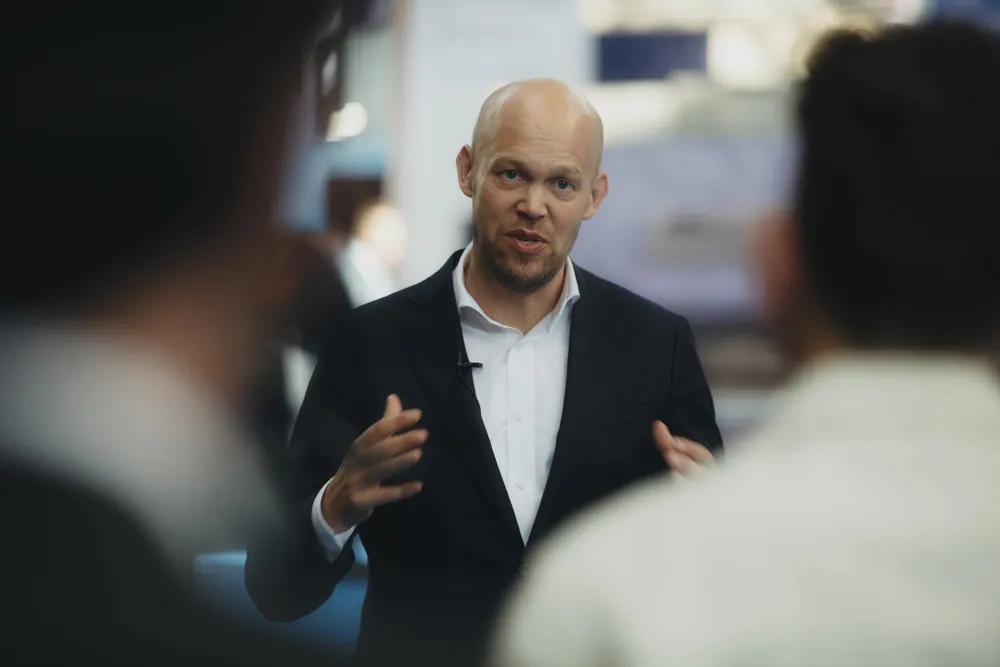'It's a lot of money': Orsted chiefs grilled by shareholders over $9.4bn rescue plan
Chair and CEO insist they've 'done their homework' as rights issue gets go-ahead amid questions from small shareholders

Orsted’s two top bosses were grilled by long-suffering small investors as shareholders backed a DKr60bn ($9.4bn) rights issue critical to shoring up the offshore wind giant’s finances.
The proposal was voted through by more than 98% of shareholders at an extraordinary general meeting (EGM) in Copenhagen today, clearing the company to launch the rights issue.
Orsted’s shares were slightly down at DKr198 following the vote. But their value has been shredded since a high point of DKr1,351 in early 2021 and Orsted is not currently paying a dividend to shareholders.
There were also questions over whether Orsted could end up a Norwegian-owned company, and even if the developer was exposed to further risks in the Taiwanese market.
Mikkel Beck, managing director of the Danish Shareholders Association, told the EGM: “DKr60bn is a lot of money.”
“As private investors, we've seen a price drop of 85% to the shares. We have a record high capital increase,” added Beck, as he asked Skole and Errboe how they could be sure that the sum would be enough to keep Orsted on track.
Beck also queried if the presence of Norwegian state-backed Equinor, which owns 10% of Orsted, alongside majority owner the Danish government should mean smaller investors worry.
“It's another state-controlled company that is now mixing blood, you could say, with... another state-owned company. Where does it leave us private investors? Do we need to fear that Norway will take over our offshore wind adventure like we sold the oil fields cheap?”
Skole claimed Orsted and its board would seek to look after the interests of “all shareholders” but refused to comment on the company’s ownership structure.
Errboe told the meeting “we have done our homework. We have been thorough” in assessing the current and future scenarios in the US. “That’s why the capital increase is of an order of magnitude that enables us to carry out our business plan, even with the growing uncertainty in relation to offshore wind in the US.
“The capital increase gives us a strong financial foundation, and we need that in order to rebuild our business.”
Another individual shareholder asked Errboe about the company’s presence in Taiwan, which he claimed is “one of the hazardous places, I would say, to have investments [over] the next 20, 30 years” citing potential threats from China.